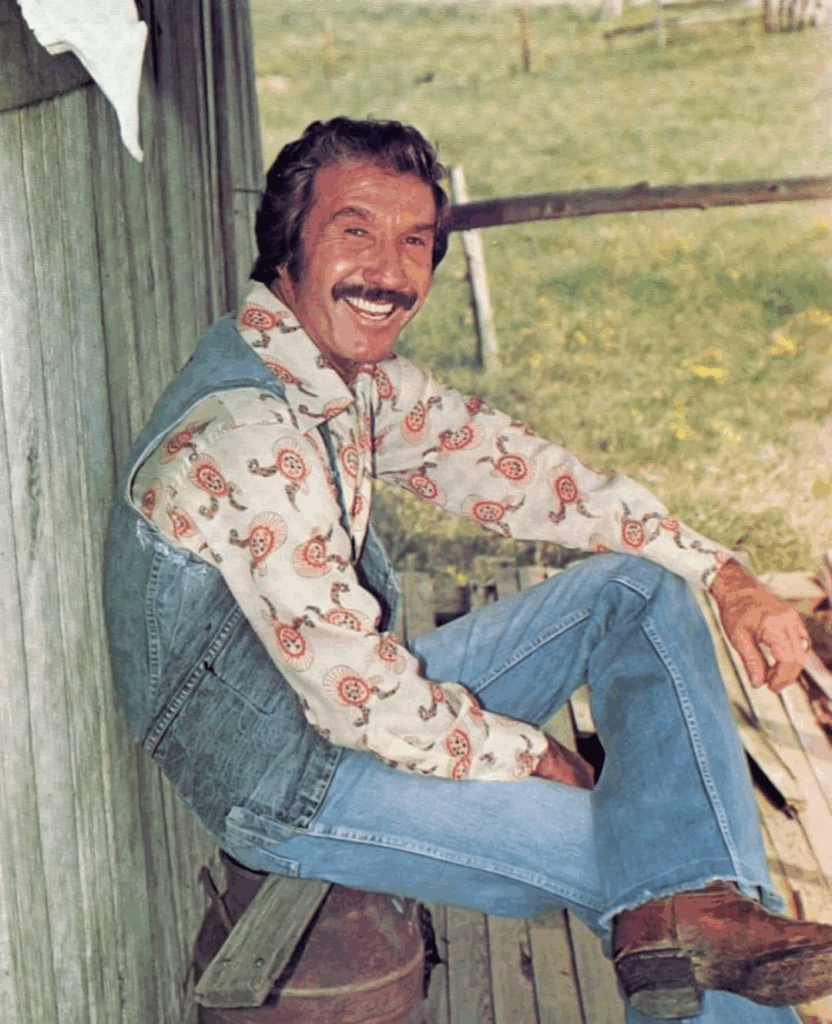
Marty Robbins’ “Don’t Let Me Touch You”: A Desperate Plea Against the Overwhelming Power of Relapse
While Marty Robbins is rightfully celebrated for his grand Western narratives, he was equally masterful at capturing the small, excruciating dramas of the heart, particularly those involving self-control and the overwhelming pull of temptation. “Don’t Let Me Touch You” is a poignant, almost prayer-like ballad that finds the narrator standing at a critical emotional crossroads, desperately begging his former lover to protect him from his own weakness—a feeling that resonates deeply with anyone who has battled a powerful, yet dangerous, attraction.
“Don’t Let Me Touch You” was a significant single release for Marty Robbins in 1971. It appeared on his album From the Heart, and its success proved that his smooth, emotionally sincere delivery was perfectly suited for the contemporary country-pop sound of the era.
The song performed strongly on the country charts, peaking at Number 6 on the Billboard Hot Country Singles chart in the United States. This top-ten success underscored Robbins’ enduring relevance and his ability to convey complex, vulnerable emotion to a mass audience. Written by Bobby Sykes and Danny Dill, the song was perfectly tailored for Robbins’ mature vocal style, allowing him to embody the character’s internal struggle with grace and profound honesty.
The core story is simple yet agonizing: two people who clearly share a powerful physical and emotional bond have broken up, presumably for good reason. They find themselves together again, and the narrator immediately senses the danger. He knows that one touch, one brief moment of physical intimacy, will be the “relapse” that destroys his resolve and drags them both back into a painful cycle they worked hard to escape.
The meaning is a raw, powerful exploration of self-control versus irresistible desire. The narrator is not begging the person to come back; he is begging them to stay away for his own good. It is a moment of profound, self-aware vulnerability where he acknowledges his own inability to resist the person he loves. The recurring plea is the emotional lifeline he needs:
“Don’t let me touch you, don’t let me kiss you, ‘Cause if I do, I’ll never get over you.”
For older listeners, this song is especially moving because it deals not with youthful, dramatic heartbreak, but with the mature recognition of a destructive pattern. It reflects the adult understanding that sometimes, love is not enough, and separation is necessary for peace, even if the desire remains fierce. The narrator isn’t asking for a reconciliation; he’s asking for a boundary to be enforced by the one person whose presence threatens to shatter his newly built stability.
Marty Robbins sings this with controlled, tender desperation. His voice, usually so confident, is tinged with the weary acceptance of his own frailty, making the listener feel the weight of his battle. The gentle, swelling orchestration of the 1970s country production wraps around his confession, underscoring the sincerity of his plea. “Don’t Let Me Touch You” remains a timeless ballad about the enduring truth that the toughest fights we ever face are the ones against the deepest needs and desires of our own hearts.